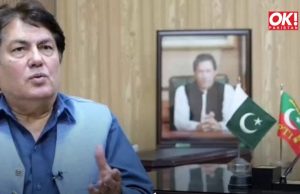
“This is My Life – the obsession of trying to find stories to tell”
With songs like Desert Rose, Shape of My Heart and Every Breath You Take (to name a few) under his belt, Sting has given the world tracks that will never be forgotten – millions of transitions and remixes have been made in the past and are still being produced, and the spirit of his music remains eternally intact. After almost a decade-long hiatus, Sting is back with a new pop-rock album – 57th & 9th.
Here he talks about torturing himself to find inspiration, walking with pilgrims to forget his fame, how he could not save Prince, why the Queen has no particular talent and where he feels most at home.
You famously came up with the line Every Breath You Take in a dream. I was wondering if dreams still inspire you or if writing has become a bit of a nightmare instead…
Sting: The very first song on the album is I Can’t Stop Thinking About You which may seem like a love song if you listen to it on one level but it’s actually about a writer facing a blank page and it looks like snow. What’s underneath the snow? Is there a road or is there an animal you’re hunting?
“You take the pen and you’re trying to find inspiration, a story, a muse, a romantic muse, a spiritual muse, an erotic muse, something. And you wonder whether what you’re hunting is laughing at you.”
So it’s a song about obsession and the obsession of trying to look for inspiration – trying to find that. So this is my life, the obsession of trying to find stories to tell.

But do you torture yourself to find inspiration?
Sting: I think it’s important for someone like me to put myself out of my comfort zone. I lead a very comfortable life so I walk to work every day. I walk 15 blocks from my house to the studio. I walk back home. I carry my guitar. I would write at home but I’d stay in the yard with my coat on, in the cold and not go in until I’d finish the song. Just as a little test for myself to write myself out of a problem rather than being sat there having my fingernails done and having people massaging my neck. I want to be slightly uncomfortable.
I would like to ask you about traveling because it seems to be a leitmotif in the album. What do you enjoy particularly in traveling or maybe you have in your mind some travels which were significant for you?
Sting: I’ve probably traveled more than most human beings on the planet – probably as much as an airline pilot of 45 years. The most personal song on the album is probably Heading South on the Great North Road. The Great North Road is the name of the main road out of Newcastle.
“If you want to seek a different life, a bigger life, a life in the world, you go south which is what I did, which is what many people like me did…And I will continue to travel. I’m a migrant.”

Can you name one instance or location when traveling far away where it was easiest to forget what you’re doing, what you are?
Sting: I go to India a lot and Nepal, and I like to take pilgrim routes. I walked to the source of the Ganga. I walked to the source of the Yamuna, in the Himalayas, and I slept by the road with pilgrims who had no idea who I was. It didn’t matter. So in those kinds of experiences, I totally forget that I am a rock star and that I’m famous. And it’s a great relief to do that sometimes! Although I quite enjoy who I am and I’m grateful for who I am, sometimes you need a holiday from yourself. And walking helps especially in the Himalayas and Nepal. I love to walk there.
One of the beautiful things about music is that it travels and becomes part of the fabric of people’s lives. What in your case have been strange echoes that you’ve heard over the years of your music, either it being taken out of context or emerging somewhere where you didn’t expect it?
Sting: No, I don’t take that for granted. I’m always nourished by information when people say ‘oh, your songs have somehow created a framework for our lives’, emotional memories. ‘We got married or we made love or I got divorced! Your songs meant something or you know, my father died and one of your songs helped me’. This for a songwriter is the best endorphin you can have. It gives you a complete feeling of being relevant and having the right job. So I’m always very grateful. I never take it for granted. And it is surprising because I wrote a lot of these songs living in a little flat in London, just singing the songs to the cat. And the cat wasn’t very interested! And now I sing the same songs to thousands of thousands of people who know all the words. That’s still surprising to me and an extraordinary feeling which is hard to express.
But what was a strange echo, the strangest one, the most unusual one?
Sting:The best songs are ambivalent. Every Breath You Take – some people think it’s a very sinister song. Some people think it’s a very romantic song and my interpretation is that it’s both. That’s why it’s probably my most successful song. It has this ambivalence, this ambiguity. So yeah, sometimes there are strange interpretations and your songs end up in strange places. I always hear my music by accident. I don’t listen to it actively. I’ll hear it in a hotel lobby or a bar or when shopping! But I’m always happily surprised by it. It’s a nice feeling.
“Some people interpret songs in a completely different way to the way I intended but I would never contradict them because a song should be ambiguous.”
On 50’000 you ruminate on mortality and immortality. Do you find some comfort in singing Rock Stars Don’t Ever Die, They Only Fade Away?
Sting: Well, we do die. That’s the whole point of the song. It’s taken from the point of view of someone like me, a rock star who has lived most of his life already. And your colleagues are dying, as many did this year. And it makes you really take your mortality seriously.
Have you ever warned a colleague, said ‘be careful’? Prince dying of that Fentanyl medication was totally unforeseen but have you ever talked with your peers about high risk?Sting: People I’ve worked with very closely have been high risk, through alcohol or drugs or general lifestyle. Warning is too dramatic. I think to talk about the issues, to talk about addiction, to talk about things that may mess you up seriously, yeah, that’s my job as a bandleader to do that. But I wasn’t in a position to call Prince up and say ‘stop taking these drugs’. It’s tragic. You know, it’s a high risk occupation.
How were you able to stay away from all those temptations and dangers connected with fame yourself?Sting: I wasn’t immune to any of those things…But fortunately I don’t have an addictive personality, although I’m addicted to work. I sublimate my obsessions into work. But I’ve been in as much danger as anybody else.
You’ve been an activist for many years. I was wondering if you ever get discouraged about everything that’s going on in the world right now…
Sting: You know, my strategy in life is to be optimistic. It always has been. I think it’s a better strategy. But it’s getting harder to be optimistic.
But do you think our times are harder than 10-20 years ago or do you think it’s just a matter of perspective?
Sting: You know, there are two ways you can look at it. I think we know more now, so we’re instantly connected to the whole world, the media. So we know everything that’s going on, whereas in the past people could…thousands of people could die and we’d never find out about it! Maybe there’s less violence in the world now than there used to be. It’s an argument.
I think progress happens in leaps and then it goes back. So, that’s my optimistic answer! My pessimistic answer is that the world’s f—ed! Do you know what? I’m not sure what to do about it apart from singing songs.
What triggered this return to a guitar sound on this record?
Sting: Surprise. You know, I think I’ve been making esoteric, curious records for a decade so people may assume that that’s what I would do this time so no, let’s surprise people. That’s the most important element in music, surprise. In composition, when I listen to music I want to be surprised so when I choose what I do, I want to shock people a little. I think when you listen to this record you go ‘oh, that’s not what I expected’.
Are you still able to shock and surprise yourself because I assume it’s getting harder?
Sting: Well, I’m very curious about music. I’m very invested in learning more about music, becoming a better musician. And you can’t get to the end of that journey. There’s no end to it. It’s a limitless ocean to swim in. So, I don’t think I know everything about music so I will continue as long as I can.
I have a question about the British gutter press. How important is it to curtail it?
Sting: Two answers really, it’s our version of the Stasi, the secret world of judgement. On the other hand, it signifies a vibrancy and a lack of reverence for the great and the good, that all of us are sometimes in the stocks for people to throw eggs. And sometimes it’s your turn and you have to put up with it. I think it’s part of British life. The press, the gutter press – it is what it is. There are also good things about England and Britain.
Such as?
Sting: You know, I’ve lived here a lot. I’m still a British citizen, although I voted to remain in the EU. I think that was a mistake. I like our constitutional monarchy. I think it’s interesting. Our Queen has no power. She has no particular talent. She’s just there as a symbol. But I think she’s fairly humble. And she’s just a figurehead. I think it’s a constitutional safety net. It stops the government becoming too powerful, I hope, dictatorships coming through.

Where do you feel most at home?
Sting: Home is where my wife is and my children. And that seems to be New York for the past decade or so.
Do you find yourself generally writing going with your mood or writing against your mood? In other words, has a melancholic song sprung from a melancholic mood or the opposite?
Sting: Not necessarily. I’ve had melancholy periods in my life of course which I can draw upon as a reservoir of experience but I don’t need to manufacture that feeling again. I think some people think ‘to be an artist I must suffer therefore I must manufacture suffering’. I don’t want to do that. I’m happy and grateful for my lovely life. But also it’s been therapy in the past, to write about the loss of love or the loss of a person has been my visit to the shrink, as a personal therapy which I think has kept me sane, largely. So, it’s both. I can write a melancholy song when I’m really happy or a happy song when I’m unhappy. I think my songs are ambivalent enough to contain both. You can write a sad song with a happy melody, sad lyrics with a happy melody. I’ve done it many times.
Is there one of your songs that you know to be sadder than it seems to the outsider?
Sting: Off the cuff I can’t think of one. But some of the songs are very personal and perhaps I don’t need to draw attention to that. A song works, the melody and the lyrics work, without me really or they should. I shouldn’t have to invest too much of my own personality into how lyrics work, how a melody works. It works without me, otherwise I’m overacting. You know, I’m a bad actor. I think you should almost be a cipher. You’re just an instrument for this to work. So I try not to get too emotionally involved when I perform.
Do you sometimes get sick of hearing your own hits?
Sting: No, my job is to sing a song I wrote 30 years ago with the same energy and passion and curiosity as if I’d written it this morning. That’s my job. And I always find something different, a little incremental change, a slightly different melody, a different bassline somehow. My musicians will add something that they’ve been given permission to experiment on and I go ‘oh, that’s good’ or ‘that wasn’t good’. But the songs will evolve and they’re meant to. I’m not trying to reproduce a song I recorded. It’s supposed to be the starting point for a journey. No, I don’t get bored.
![]()
INTERVIEW: COLIN TURNER/THE INTERVIEW FEED
PHOTOGRAPHS: GETTY, WENN




















































